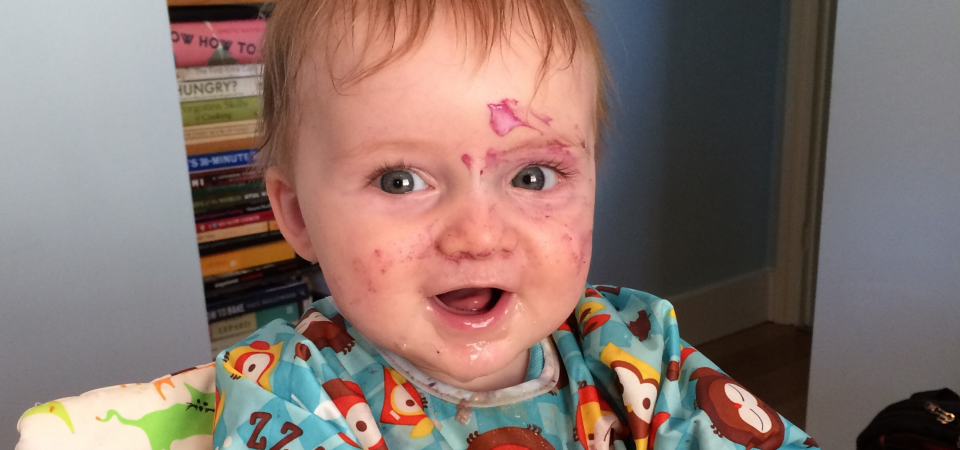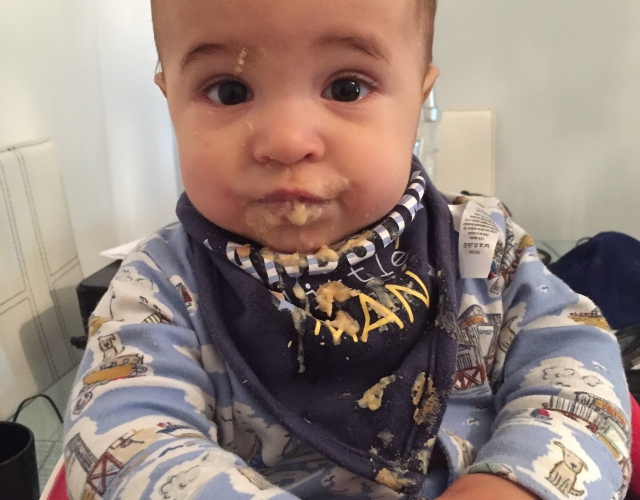Foods and drinks to avoid
Salt
Babies’ kidneys can only cope with a very small amount, so don’t add any to their food – and when cooking family meals, take out the baby’s portion before adding salt.
Watch out for stock cubes, gravy powder, ready meals, takeaway food, savoury and salty snacks and processed meat or fish dishes – these aren’t suitable for babies as they are often high in salt.
Sugar
Steer clear of any foods or drinks with added sugar (and fruit juice) to avoid the risk of tooth decay and your baby gaining more weight than is healthy.
Avoid artificial sweeteners too as your baby will get used to sweet tastes and may refuse to eat the savoury foods they need for their healthy development.
Honey
Honey can occasionally contain a type of bacteria that causes a serious illness called infant botulism, so should not be given until your baby is over a year old. But as it is a sugar, even then only add it to your baby’s food occasionally.
Low-fat foods
Babies and young children under 2 years need fat for healthy growth and development. Go for full-fat yoghurt, cottage cheese and milk.
High-fibre foods
Too much fibre means that your baby won’t be able to absorb all the nutrients they need from the food they eat.
Avoid bran-type cereals, and include a mixture of white and brown bread (toasted), pasta and rice in your baby’s diet.
Additives
Steer clear of food and drinks containing E102, E104, E110, E122, E124, E129 and E211.
Rice milk – or rice drinks, which contain higher levels of arsenic than is advisable for babies.
Stimulants – any drinks that contain caffeine or other stimulants, such as cola, coffee, tea or alcohol.
Allergies
There is no evidence to show that waiting to introduce certain foods helps to prevent allergies. The following foods can be introduced gradually from 6 months:
✓ nuts and seeds
✓ fish and shellfish
✓ eggs
✓ gluten
✓ cows’ milk – in food
Give them one at a time, in small amounts and watch for any signs of allergic reaction:
✓ skin reaction, e.g. blotchy raised red rash, itchy patches, swollen lips or sore, red eyes
✓ upset stomach
✓ runny nose
✓ breathing difficulties
If your child shows any of these symptoms, talk to your GP – or ring NHS 111 for non-urgent queries
If you think your baby is suffering a severe allergic reaction, ring 999 and ask for a paramedic.
Where your baby has already been diagnosed with an allergy – or there is a family history of allergies, eczema, asthma or hayfever – be extra careful when introducing the foods listed above and speak to your GP or health visitor first.
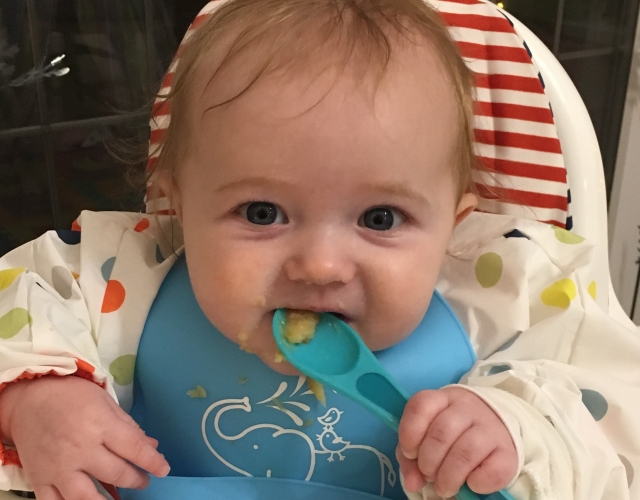
Ideas for first foods – and how to help your baby enjoy the new experience
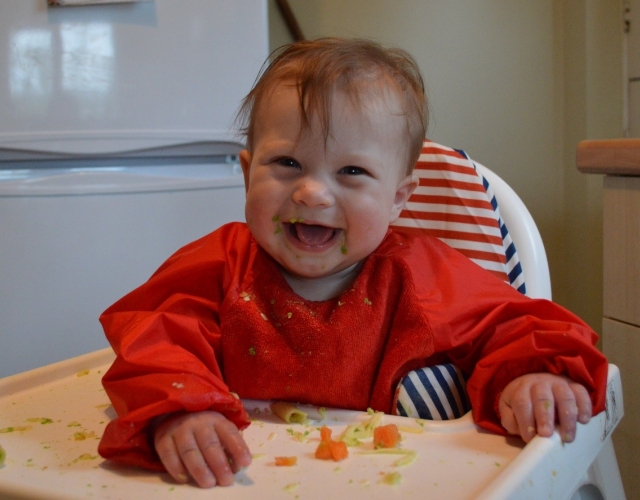
Introducing more tastes and textures once your baby has got the hang of eating
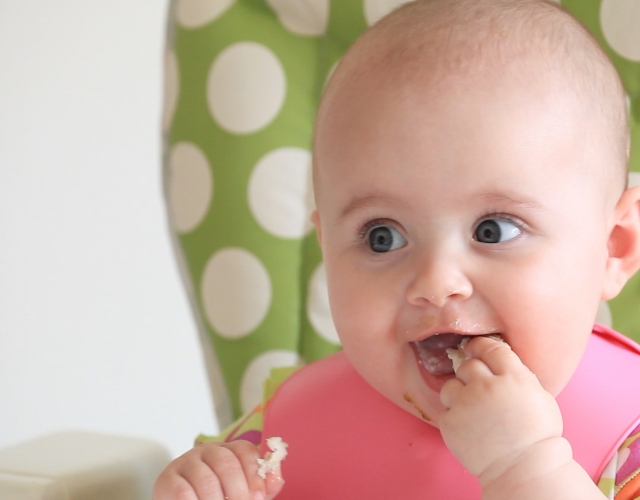
Getting your baby into healthy eating habits – as well as the rest of the family

